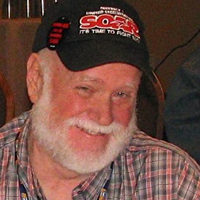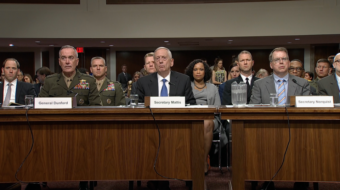
The terrible mayhem and slaughter last week at Fort Hood Texas shocked us all. All of us feel deeply for the families, the loved ones and the friends of those who were hurt and killed. An ever-growing majority of the American people oppose the wars in Iraq and Afghanistan. But opposing these wars does not for a moment rob us of our compassion those hurt or killed. Whether in combat, or as “collateral damage,” those who die are not responsible for the war policies that make these wars such a human tragedy.
The horror of Fort Hood also brings flashbacks of the war in Vietnam.
My flashbacks are not combat related. Drafted, I only spent a short time in the U.S. Army, most of it in the stockade at Fort Campbell, Kentucky. I refused to train for combat, and made it clear I would not go to Vietnam. Some of my stockade time was spent in solitary confinement for trying to organize antiwar discussion groups in the stockade. In solitary we couldn’t see the prisoners in the cells on either side of us, but you could shout back and forth. We also saw each other briefly when we were taken out of our cells for exercise. On one side of me was a young draftee who had shot off his big toe in hopes of getting discharged from the Army. On the other side of me was a sergeant who was being court-martialed for allegedly killing an officer in Vietnam. He was in transit to Ft Leavenworth, Kansas for trial.
The sergeant’s story went like this. He was out on patrol when they came in sight of an elderly Vietnamese man riding a bicycle on the other side of a rice field. His lieutenant told him to shoot the old man because he was a fleeing Viet Cong soldier. The sergeant argued he was just an old man riding his bicycle. The argument got heated. He said the next thing he knew the lieutenant was dead. The sergeant said he had no memory of how it happened.
But why “invisible wounds of unjust wars,” surely these kinds of things happen also in the terrible stress of any war? Surely this kind of thing happened in World War II? Maybe. But in WWII almost everyone believed in what they were fighting for. And the overwhelming majority of the American people supported the war and viewed it as necessary and the only way to defeat fascism. The “normal” stress of war was not compounded by moral uncertainty or questions about the justness of the cause.
A friend told me about his own son’s experience in Iraq. He had tried to talk his son out of signing up for the Army, even though my friend had been a career soldier before he became disillusioned with Bush’s wars. Later his son called him from Iraq by satellite telephone crying and telling his dad that he just wanted to come home. “Why? Did something happen,” my friend asked? His son answered, “Dad, if I have to kick down one more door and watch women and children run screaming and crying from me, I think I’ll go nuts.”
My fear is that the invisible wounds of the wars in Iraq and Afghanistan will be even worse than those suffered by my generation from the Vietnam war. This is a very different kind of warfare. It seems to me the ratio of innocent civilians killed related to military casualties is much higher in today’s wars. Perhaps that’s one reason why the Army reported last summer that the suicide rate for soldiers is the highest on record. Fort Hood reported the highest rate of any military base.
The economic crisis just makes the stress worse. So many young people, especially poor and working class kids, are being driven into the military because there are no jobs. With record youth unemployment, for many there are no other options. Even for those with grave reservations about today’s wars.
Some studies estimate that as many as 35% of soldiers who fought in Iraq will suffer from post-traumatic stress disorder. Already the number of unemployed and homeless Iraq vets is staggering. This cannot stand. To even begin to heal the invisible wounds, emergency measures are needed to get vets off the streets and into safe environments. Emergency government jobs programs, including special measures for vets, are needed. The labor movement’s “Helmets to Hard Hats” program is a great effort and needs to be matched with public funding and public infrastructure projects.
A new GI Bill that guarantees education, employment, total health care including special mental health approaches is a must.
And we must end the wars in Iraq and Afghanistan. Now.
Photo: Beverley Clark wipes away tears following a prayer for the victims, at the Survivor Outreach Services building, on Fort Hood, Texas. Steven Doll/ Killeen Daily Herald/AP










